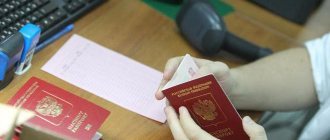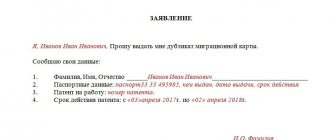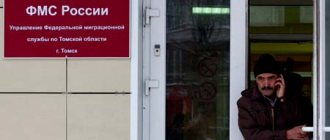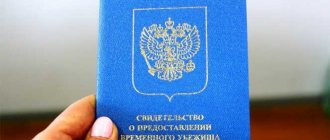Advantages of Turkmenistan citizenship
A person who has received citizenship of Turkmenistan receives the same rights as residents of the country who were born there. You can work or study in the country, do business, vote in elections, and so on. Living here has the following advantages:
- Turkmenistan is characterized by political stability. Despite the fact that the state is generally considered closed, various international checks have confirmed that there are no violations in the country’s political system, and the rights and freedoms of citizens are fully respected. The state's foreign policy is restrained; it tries to avoid conflicts of a military nature.
- Business is another positive side. Opening a soybean business in the country does not require huge investments. In addition, the cost of products and real estate here is significantly lower than in Russia.
- Turkmenistan has a very favorable environment. There are large areas of untouched nature.
- Low cost of food, fuel, equipment and so on.
- The Russian language is widely spoken throughout the state.
- The country has a fairly low crime rate.
- Turkmenistan has both the sea and ski resorts.
Entry rules and basic requirements
Ordinary citizens of Turkmenistan enter Russia on a tourist or work visa. Upon arrival in the country, they must register for migration. The receiving party is obliged to notify the foreign citizen of the arrival within 24 hours.
The next step will be registration at the FMS office. You can then apply for a temporary residence permit. After a certain period has passed, an application for a residence permit is submitted.
Those wishing to become Russian citizens must be prepared for a complex and lengthy procedure. Five years of residence in the country and consistent registration of statuses are required in accordance with the general requirements for applicants:
- age of majority;
- capacity;
- at least five years have passed since receiving the residence permit;
- no criminal record;
- decent knowledge of the Russian language;
- availability of any type of housing;
- Financial independence.
An applicant wishing to obtain Russian citizenship must prove legal means of subsistence.
You can obtain a Russian passport in general and simplified ways. They differ in terms of consideration of applications.
Reasons for receiving
First of all, a foreigner whose goal is to obtain Turkmenistan citizenship must study the “Citizenship Law.” Here you can find a list of reasons for becoming a resident of the country. There are only a few of them.
By right of birth or descent
Citizenship is automatically granted to persons who were born on the territory of the country. This also applies to those who have one or both parents with Turkmen citizenship. In addition, a passport can be obtained by those who, during the Soviet era, for certain reasons, were resettled to another country.
As a result of marriage
A person who marries a citizen of Turkmenistan can obtain citizenship under a simplified scheme. The marriage should not be fictitious.
Family reunification
This program is intended for close relatives. The degree of relationship must be documented.
Investments and business
Privileges are given to individuals who develop businesses in the country, creating jobs, and who invest in the country’s economy. The country is rich in energy resources and seeks to attract as much capital as possible from abroad, including from Russia. However, there are risks for investors.
Refugee status
To obtain refugee status, it is necessary to prove that a person is in danger in his homeland and write a corresponding application.
By naturalization
Naturalization is suitable for persons who do not have Turkmen roots or relatives in the country. First you need to get a residence permit and live with it in the country for 7 years. After the required period of residence has expired, you can submit an application for citizenship to the relevant Migration Service. The applicant is also required to comply with local laws and customs.
Purchase of real estate
Purchasing real estate is not the basis for obtaining citizenship, but it significantly simplifies the process. Purchased housing can be used in different ways: live in it on a permanent basis, spend only vacations, or rent it out.
other methods
Citizenship of Turkmenistan can also be assigned to persons with unknown citizenship, whose birth is registered on the territory of the country, as well as to those who were born in another state, but for certain reasons they cannot be assigned resident status.
Also, citizenship is automatically assigned to children whose parents’ location and civil status are unknown. This also applies to children taken into custody by residents of the country.
The procedure for obtaining citizenship by a citizen of Turkmenistan
Citizens of Turkmenistan can obtain citizenship either according to the general procedure or through a simplified procedure. In accordance with the general procedure, certain requirements are imposed on an applicant for citizenship:
- Reaching the age of majority;
- Residence in the Russian Federation with a residence permit for at least 5 years;
- No criminal record;
- Passing a test of knowledge of the Russian language;
- Availability of own or rented housing;
- Financial solvency.
Important! Due to the fact that Turkmenistan was part of the USSR, its citizens, in the event of military service under a contract in the RF Armed Forces, have the right to apply for Russian citizenship without obtaining a residence permit.
The following citizens of Turkmenistan can count on a simplified method of obtaining Russian citizenship:
- If one or both parents have Russian citizenship and live on the territory of the Russian Federation;
- Those who are citizens of the USSR and living in one of the former Soviet republics, but are not citizens of this country;
- Married to a Russian citizen;
- Disabled people whose children have Russian citizenship;
- Veterans of the Great Patriotic War who previously had USSR citizenship and live in Russia;
- Participants in the state program for the resettlement of compatriots;
- Children under the guardianship of a citizen of the Russian Federation.
Registration procedure
Initially, to enter the country, you need to apply for a visa. To obtain citizen status, you need to live in Turkmenistan for at least seven years. Issues regarding the assignment of citizenship status, denial of it and its restoration are dealt with by the President. The receipt procedure includes the following steps:
- You need to write an application addressed to the President and submit it to the Ministry of Internal Affairs along with the necessary documents.
- The application is considered by the commission.
- A decision is made. When it is accepted, you will be notified.
Basic provisions
The basic rules and norms of the procedure for obtaining or conferring citizenship are regulated by the Law of the Turkmen Republic on Citizenship. It is in accordance with it that the status of a citizen of this republic is assigned.
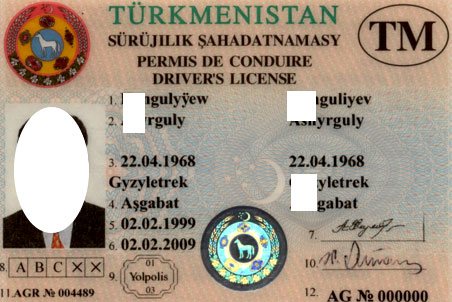
Sample driver's license for a citizen of Turkmenistan
Based on this Law, there are several ways to obtain citizenship in 2021. These include:
- Directly upon birth.
- Assignment of status through acceptance.
- Restoring what was previously lost.
Required documents
The application to the relevant authorities is supplemented with a package of necessary documents. It is necessary to provide the applicant's passport, papers confirming income and permanent residence in the country. If the person is an ethnic Turkmen, this must be documented.
Citizenship applicants also need:
- respect the constitutional laws of the country;
- comply with current foreign legislation;
- know the state language - Turkmen.

Documents required to register a marriage with a Turkmen
In form and essence, the procedure for getting married on the territory of the Russian Federation with a citizen of Turkmenistan is no different from a wedding with a representative of another country or two Russians. The only difference is in the list of documents that will need to be prepared for submission to the registry office in order for a Russian woman to be able to marry a Turkmen.
The package of documents must be completed:
- foreign passport of the Turkmen spouse and its notarized copy;
- translation of a foreign passport certified by the consulate of Turkmenistan in the Russian Federation or notarized;
- certificates confirming that none of the future spouses is in another marriage;
- application in the prescribed form;
- a document confirming the legal stay of a citizen of Turkmenistan in Russia;
- a divorce certificate (if the spouse or his future Russian wife were previously in a registered marriage);
- receipt of paid state duty.
An indispensable condition for acceptance of the application and attached documents is that both spouses are 18 years old, which is required by the laws of both countries.
Who can be refused
After submitting the application, it, along with the documents, is considered by a special commission. Most often, the decision is positive, and the applicant receives citizenship of the country and a passport as a citizen of Turkmenistan. However, in some cases you may be refused. The reasons for this may be the following:
- Commitment of a crime by the applicant.
- Unlawful actions against people, including the population of Turkmenistan.
- Promoting activities that are illegal.
- Actions against the independence of Turkmenistan.
These are the main cases when a person is refused. A second attempt to submit an application is possible after a year.
Is dual citizenship possible?
Is dual citizenship of Turkmenistan and Russia possible? Previously, there was an agreement between the countries, according to which it was possible to have dual citizenship. However, in 2015, this agreement ceased to operate for some reasons.
Dual citizenship is recognized only within the Russian Federation, while it will not be recognized by the government of Turkmenistan. Therefore, having received Turkmenistan citizenship, a resident will have to renounce Russian citizenship.
Obtaining citizenship of Turkmenistan for a person from the Russian Federation is quite simple, although it is necessary to take into account the specifics of this procedure and the requirements for the applicant. It is recommended to decide in advance on the basis for obtaining citizenship and prepare all the necessary documents.
Russian citizens in Turkmenistan: life after May 18
On May 18, 2015, the Agreement between Russia and Turkmenistan on the settlement of issues of dual citizenship terminated. But the issue for many Russian citizens who also have Turkmen citizenship remains unresolved.
On July 3, 2013, the President of Russia submitted to the State Duma a draft federal law “On the ratification of the Protocol on the termination of the Agreement between the Russian Federation and Turkmenistan on the settlement of issues of dual citizenship.” The explanatory note to the bill, in particular, says the following.
“On April 10, 2003, in Moscow, the President of the Russian Federation and the President of Turkmenistan signed a Protocol on the termination of the Agreement between the Russian Federation and Turkmenistan on the settlement of issues of dual citizenship (hereinafter referred to as the Protocol). On April 22, 2003, the Turkmenistan Side notified the Russian Side of the implementation of the internal state procedures necessary for the entry into force of the Protocol. At the same time, the Turkmenistan Side reported that, in accordance with the regulatory legal acts adopted by it on April 22, 2003, persons with citizenship of Turkmenistan and the Russian Federation were given the right to choose the citizenship of one of the countries within two months. The Turkmenistan side announced the non-recognition of the institution of dual citizenship, which was reflected in the amendments to the country’s constitution adopted on August 20, 2003.
The absence of a properly formalized termination of the Agreement between the Russian Federation and Turkmenistan on the settlement of issues of dual citizenship, as well as the unilateral steps taken by the Turkmenistan Party, which placed persons with Russian and Turkmenistan citizenship in the need to forcibly renounce one of them, did not allow the Russian Federation ratify the Protocol. As a result, since 2003, this problem has become the subject of diplomatic negotiations between Russia and Turkmenistan in order to overcome the current situation and protect the interests of persons permanently residing in Turkmenistan with Russian and Turkmenistan citizenship.
In May 2014, Russia and Turkmenistan reached a high-level understanding that, subject to ratification by the State Duma of the Federal Assembly of the Russian Federation of the Protocol of April 10, 2003, the Turkmenistan Side will provide foreign passports of a new type to all those applying for them, regardless of the date the applicant acquired dual citizenship. Thus, the authorities of Turkmenistan recognize the status of persons with dual citizenship for everyone who acquired it by the time the Protocol entered into force, that is, to the present day. At the same time, from the date of entry into force of the Protocol, the increase in the number of persons with dual citizenship will cease.
In view of the fact that dual citizenship is no longer provided for by the legislation of Turkmenistan, and also taking into account the clearly expressed readiness of the President of Turkmenistan to provide new passports to citizens of Turkmenistan who are also holders of passports of the Russian Federation, ratification of the Protocol is in the interests of the Russian Federation.”
Ratification of the Protocol in the State Duma was delayed, among other things, because the Turkmen side was in no hurry to exchange foreign passports for bipatrids. And by May 18, 2015, the Agreement expired, so there was no need to ratify the Protocol on its termination.
At the conclusion of the Agreement, a five-year validity period was established with automatic extension for each subsequent five years if neither party declares its intention to withdraw from the Agreement. Since it entered into force upon the exchange of instruments of ratification on May 18, 1995, the next five-year period expired on May 18, 2015. After this date, it became impossible to obtain the status of a bipatriate, a person who has both Russian and Turkmen citizenship.
In Turkmenistan, as in Russia, citizens have two passports - internal and foreign. To travel abroad you must have a passport. The old-style passports expired on June 10, 2014. From this date, a citizen of Turkmenistan must have a new passport to leave the country or enter, if he is abroad.
At the same time, not everyone manages to exchange a foreign passport. Citizens of Turkmenistan living abroad were required to return to the country to replace their passports. The consulates did not do this. Citizens temporarily staying abroad can obtain a new passport at the consulates only if they have permanent registration in Turkmenistan.
New passports are also not issued to those who, along with Turkmen citizenship, have Russian citizenship acquired after June 22, 2003, when Turkmenistan unilaterally withdrew from the Agreement.
Such a citizen can travel from Turkmenistan to Russia without a visa using a Russian passport. However, without a new Turkmen international passport, he will not be able to return to Turkmenistan without a visa, although he is a citizen of Turkmenistan, and he will not be given a visa. So binationals found themselves in a trap.
The director of the Institute of CIS Countries and member of the Public Chamber of Russia, Konstantin Zatulin, continues to receive letters from Turkmenistan from Russian citizens who simultaneously have Turkmen citizenship and who became bipatrids after June 2003. The applicants write that the migration services of Turmenistan refuse to accept documents for obtaining new passports, and after May 18, when the Agreement expired, they declare that new passports will not be issued at all to those who have Russian citizenship. At the same time, Russian-Turkmen bipatrids are faced with a choice: either renounce Russian citizenship or leave Turkmenistan for permanent residence in another country, which is equally unacceptable or impossible for most of them. At the same time, they do not receive clear explanations from the Russian Embassy in Turmenistan.
In connection with the received appeals, Konstantin Zatulin in June of this year. again addressed the Russian Foreign Ministry to Deputy Minister Grigory Karasin with a request to clarify the situation and help resolve this problem.
The response from the Ministry of Foreign Affairs states that the situation today has not changed for the better: “the situation with the passportization of bipatrids who acquired Russian citizenship after 2003, unfortunately, remains unchanged: bipatrids who became so after June 22, 2003 (9292 person), local migration authorities refuse to issue foreign passports. They are motivated by the fact that Turkmenistan allegedly does not recognize the institution of dual citizenship, although there is no direct ban on having citizenship of another state in local legislation.
For our part, we consider this practice unacceptable, which was repeatedly stated to the Turkmen side during negotiations at various levels. We continue to make efforts to resume a constructive dialogue on this issue with Ashgabat.”
There remains only a ghostly hope that the “constructive dialogue” on binationals will continue, and the Turkmen side will fulfill the promise made by President Gurbanguly Berdimuhamedov that all binationals, regardless of the date of acquisition of their second citizenship, will receive a new passport.
Alexandra Dokuchaeva, Head of the Diaspora and Migration Department, Institute of CIS Countries
